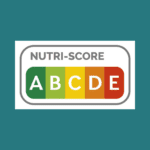Regulatory Trends is a FoodChain ID database for monitoring regulatory changes, market trends and emerging issues that affect regulatory compliance and product development.
By Kathy Van Zyl, Regulatory Consultant
A new UK report calls for sugar and salt taxes on food products. The report recommends extending the UK sugar tax beyond soft drinks as a means to improve public health. This would mean that foods high in fat, salt and sugar (HFSS) will be additionally taxed.
Some governments have placed the blame of widespread obesity on excess sugar intake from beverages. However, health experts have noted that excess salt, sugar and fat from a variety of foods are equivalent to the harmful effects of alcohol as a leading cause of noncommunicable diseases (NCDs). Sugar is linked to many health related issues like diabetes, obesity and tooth decay. Salt, likewise, is linked to issues including high blood pressure, strokes and heart diseases.
In the United Kingdom two new taxes have been recommended by organizations:
- Salt tax
- Extending the sugar levy to include all high-sugar foods, not just sweetened beverages or snacks
The rationale behind the implementation of these taxes is to lower the consumption of target foods. These foods are typically high in salt (sodium chloride), sugar and fat, and the argument is made that lower consumption will improve the health of the population. The World Health Organization (WHO) recommends that adults consume less than 2000 mg per day of sodium and 5% of daily energy intake from free sugars.
Tax on sugar in soft drinks is commonly known around the world with nearly 120 countries having some form of tax on sugar-sweetened beverages (SSBs).
Hungary introduced the Public Health Tax, popularly knows as the “Chips Tax” almost 13 years ago. Controversy remains over whether the tax was successful in discouraging the purchase of high- and ultra-processed foods. It appears that the cost of food alone is not always the determining factor. A few other countries also have adopted some form of a “junk food tax,” such as Mexico, India and Zimbabwe (Public Notice 97 of 2024). South Africa is currently considering a 20% tax on sugary beverages.
Voluntary Innovation from Food Manufacturers
Manufacturers are constantly researching new food technology methods to develop healthy, sustainable, cost-effective and tasty alternatives. Combining legal requirements of each country with customer needs is the desired outcome.
Some of the alternatives include:
- ingredient substitution with natural and artificial ingredients
- reformulation and development of flavors with techniques like fermentation and caramelizing
- natural sweeteners like fruit puree and fruits, nectar, honey and maple syrup
- artificial sweeteners, also known as non-nutritive sweeteners, like stevia, saccharin, aspartame and sucralose. The substances mimic sweetness but do not contain the amount of calories that sugar does. Controversies do however remain around artificial substances as possibly being precursors to other diseases.
- food structure and processing innovations like salt surface placement and micro- and nano-emulsions deliver the intense taste with less overall sodium chloride.
Consumer education on dietary requirements and labeling are equally important. Teaching children from a young age on the importance of selecting appropriate foods is the goal.
As of now, the UK sugar tax only applies to soft drinks. The government is set to unveil its food strategy and roadmap later this year. The debate on accepting any of these new recommendations to expand taxation is open for discussion until then.










